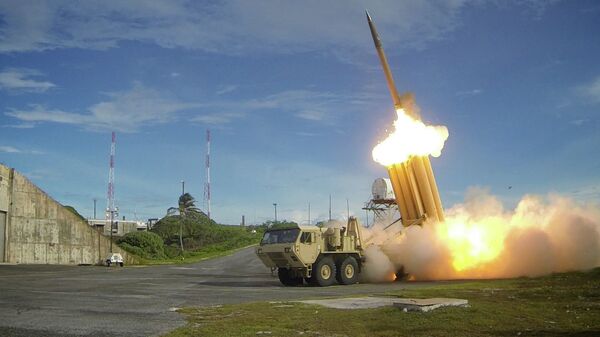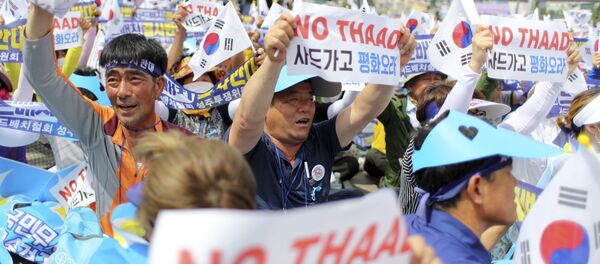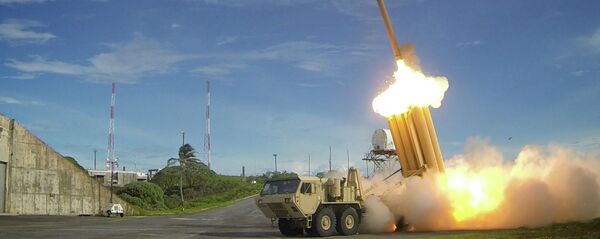The representatives of the South Korean opposition said they were going to try to improve relations with China after the US and South Korea announced plans to place THAAD missile defense systems on South Korean territory. The ruling South Korean Saenuri Party urged opposition lawmakers on Saturday to cancel the upcoming visit to China.
"The issue of relations with China has strongly reflected the acuteness of the political struggle in South Korea. The opposition and large parts of population in general believe that South Koreans have caved in American pressure by allowing the deployment THAAD missile defense systems on the bases on their territory. Thus, South Korea has seriously damaged relations with China and become totally dependent on the United States," Russian political expert and Director of the Center for Russia's Asian Strategy at the Institute of Economics, affiliated with the Russian Academy of Sciences, Georgy Toloraya told Sputnik.
Taloraya believes "if this trip of MPs is not another slap in her face, then it is at least its indication that the she is being less respected than before."
Chinese political expert Wang Junsheng supports this point of view, saying that the upcoming trip reflects severe differences existing in South Korean political circles and society with regard to THAAD deployment on South Korean territory.
"The upcoming trip of six deputies is driven by the desire to improve the China-South Korea relations, which are at a crossroads because of the announced US plans to deploy THAAD systems. However, under these conditions, contacts at the highest governmental level between China and South Korea are unlikely. The (upcoming) visit of the opposition shows that they hope to understand the way China is planning to develop bilateral relations after this step, as well as reflects a desire to maintain a dialogue with China," Junsheng stated.
Last month, the United States and South Korea concluded an agreement to deploy the US Terminal High Altitude Area Defense (THAAD) missile defense system on South Korean territory. Washington cited increased tensions on the peninsula over North Korea's nuclear and missile program for the deployment.
Beijing has long protested any move to introduce missile defense shields in the region, saying that it would destabilize the regional security balance and increase the likelihood that North Korea feels its hand is being forced. China has repeatedly criticized the corresponding intentions of the US and South Korea and expressed concerns that Washington is looking to encircle Beijing.
On Sunday, the office of South Korean President Park Geun-hye issued a stringing rebuke of Chinese criticism regarding its decision to deploy the Terminal High Altitude Area Defense (THAAD) anti-missile system in conjunction with the US military citing security concerns posed by North Korea.




